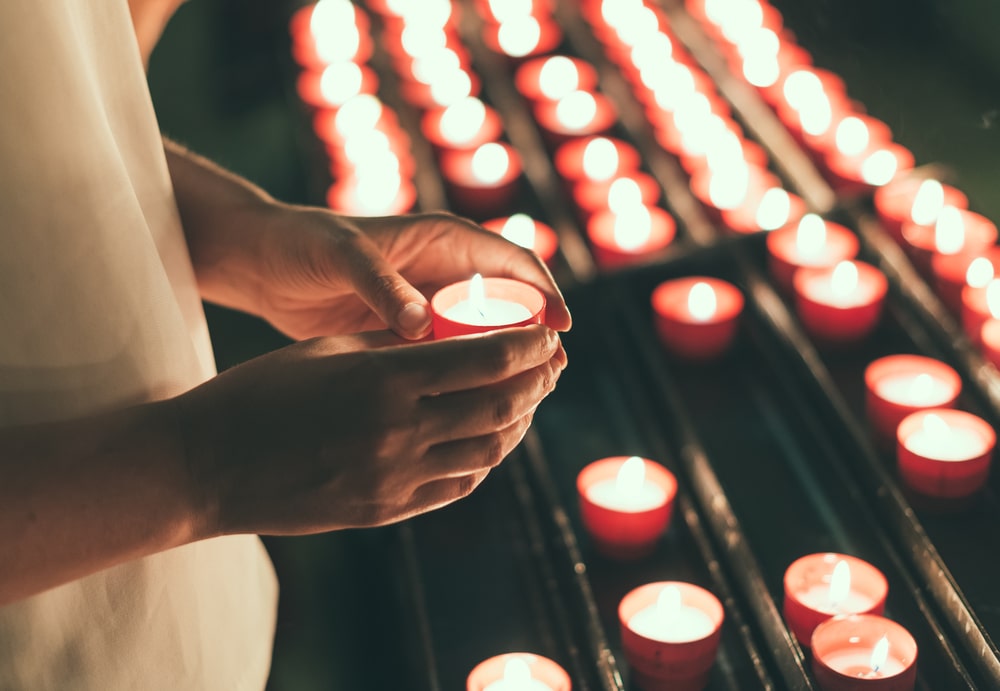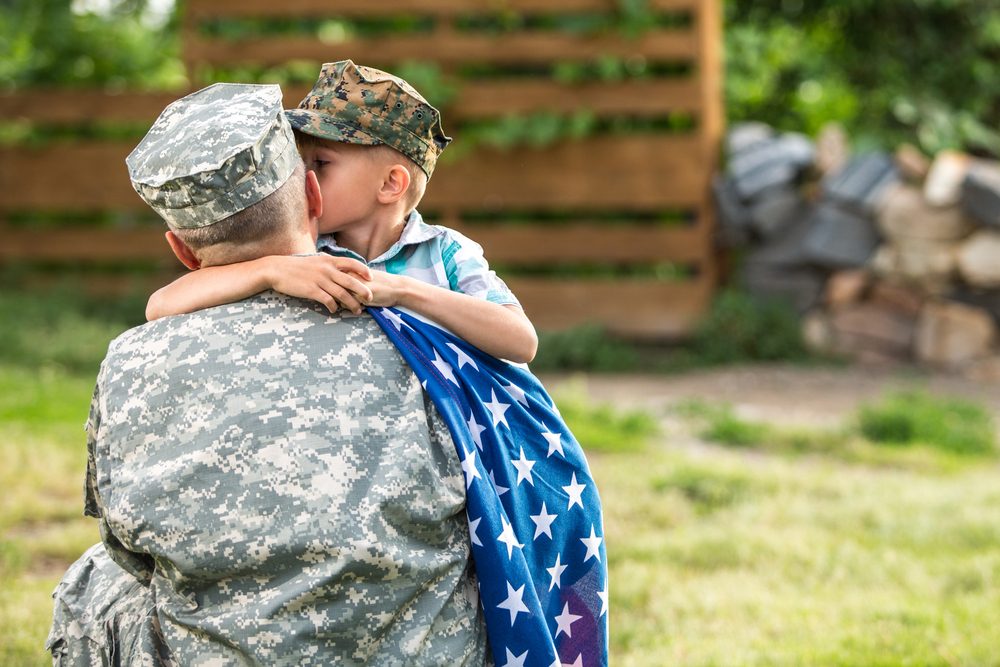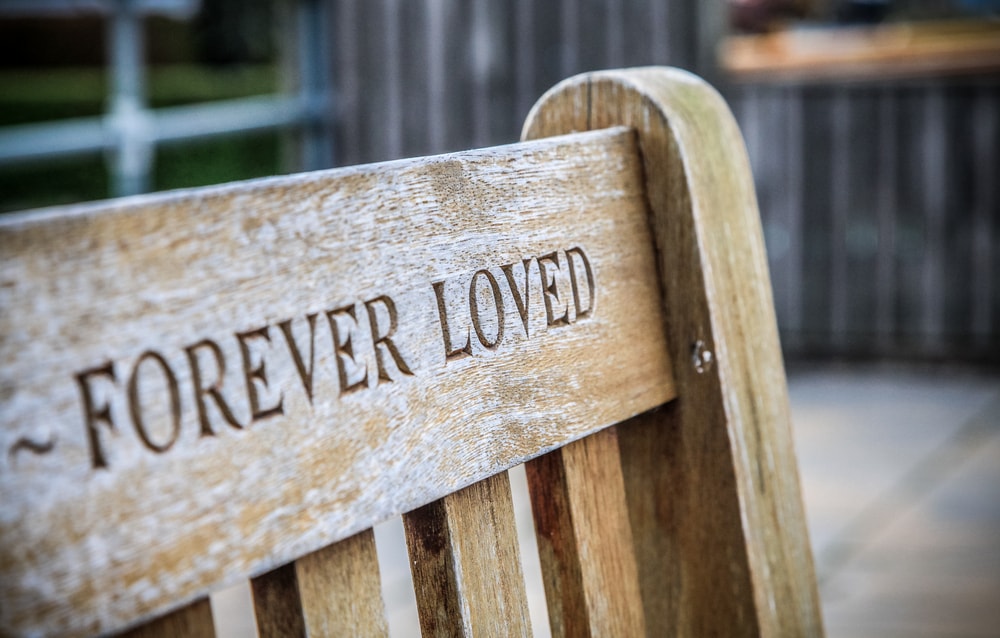
The holiday season is often particularly difficult for those who have recently lost someone or for those whose loss may not be recent but is still fresh and closely felt. Because the holidays center around spending time with family, the season might stir up some unpleasant emotions: grief, loneliness, anger, anxiety, sadness. One way to combat these emotions is to take time to remember your loved one and find ways to include their memory in your holiday activities. If you aren’t sure where to start, here are some holiday remembrance activities you can incorporate. Many can be done alone, while for others, you might consider inviting your children, friends, or other family members to join you.
1. Create a remembrance ornament

You can create any type of ornament you wish for this project. You could keep it simple by selecting an ornament from the store and adding a favorite photo to it. Alternatively, you could use papier-mâché, wood, pine cones, or other materials to create your own. Another option – one that would work well with kids – is to use clear, premade, round ornaments and then fill them up with items. You could use ribbons to represent the different emotions each person may be feeling. Or, you could use buttons, glitter, beads, sand, seashells, rocks, seeds, etcetera, or perhaps something that was special to your loved one. The possibilities are numerous.
2. Attend a remembrance event at a local church or funeral home

Churches and funeral homes often host remembrance events around the holidays. They are very much aware of the need to remember those we love and feel close to them, especially at Thanksgiving and Christmas. Because of that, you will likely be able to find a remembrance event happening in your town or a neighboring town. If you’d like to attend, consider taking the whole family or close friends. By inviting others into your grief, you let them know you value them and want a deeper friendship with them.
3. Make your own necktie wreath or quilt

If you’ve lost a loved one who owned an abundance of ties, you could make a necktie wreath or quilt during the holiday season. For both projects, you can select the ties you want to use as you see fit. You could select ties to follow a holiday theme, use the ties that were most loved, or follow a color scheme. Also, with the necktie quilt, the ties will make a centerpiece. You will need to select material from the fabric store to pair with your centerpiece. You could go with a holiday theme or simply select colors that are meaningful to you or to your lost loved one.
4. Design a personalized puzzle and assemble it

With the online services available today, almost anything can be made. In this case, you can select a favorite photo of your loved one, upload it to an image publishing service (i.e. Shutterfly, Snapfish), and order a puzzle of that photo. Once the puzzle arrives, you can sit down and put it together on your own or with family or friends. This is a way to do something tangible, and while you assemble the puzzle, you can think about or talk about your loved one and your memories.
5. Decorate a special memory tree

If you set up a Christmas tree in your home, you might consider putting up a memory tree as well. You can decorate this tree in the way that best suits you, perhaps adding a photo of the one you love. You can put your loved one’s favorite ornaments on it or you could theme it after their favorite color, movie, book, etc. Another option is to keep a pile of small pieces of paper nearby with writing utensils. When others see the memory tree, they could pick up a piece of paper and write down a special memory they have of your loved one. Alternatively, the paper could have prompts like, “I wish…” or “I remember when…” and so on. This exercise allows you and others to outwardly express what you feel inside. Also, it’s a great way to allow children to share what may be on their hearts.
6. Cook your loved one’s favorite holiday dish

Food is a part of the holiday package, and we all have our favorite dishes. As a way to bring your loved one’s memory into the festivities, you can take time to prepare some of their favorite holiday meals. This is an activity you can easily invite children, family, or friends to join. Alternatively, if you know others who are also grieving, you could get a group together and each cook the favored dish of your loved ones. Then, after everything is ready, you can sit down as a group and share a time of remembrance.
7. Watch your loved one’s favorite holiday movie

Most of us have a favorite movie to watch during the holiday season, and most likely, your loved one was the same. In some cases, it may not even be a holiday movie but just one that they liked to watch in December. Call a few friends and invite them over for an evening to enjoy watching what brought delight to your loved one, and either before or after the movie, share a few words about how much you appreciate their coming to remember your loved one with you.
8. Assemble a memory capsule

You’ve likely heard about time capsules – people decades ago put items and notes into a sealed container and oftentimes bury it, setting a date to open it again. This activity is similar, except it’s a memory capsule. Find an appropriate receptacle, and then start placing special things in it. A note to your future self about where you hope you will be in your grief journey when you open the capsule. A letter written by your loved one. Special trinkets. Photos. For children, it may be adding a treasured toy or drawing a picture. After everything is together, set a date to open the capsule and anticipate the day.
9. Craft a memory chain

For this activity, cut strips of red and green paper (or whatever color you prefer) into rectangles (roughly 8 inches long and 1 inch high). Then, on each piece, write a memory of your loved one, share how you’re feeling, talk about what you missed about your loved one, what you valued. Once you’ve written on the strips, form them into interlocking loops and create a paper chain that you can use as garland for the tree or mantle or drape over a doorway. This one is also a great activity for children, though adults will benefit as well. During times of grief, we all need to take time to express how we feel, especially when the world around us seems more merry and joyful.
10. Ask the kids what they want to do

Children are full of fun and unexpected ideas. If you have children, and you are all grieving a loss, ask them what they’d like to do to remember. They may think of something that hasn’t even occurred to you. Plus, it’s a way to invite them to use their creativity and express their own feelings, which can sometimes be difficult for children since they are still learning to navigate their emotional lives.
This list barely scratches the surface of all the activities you could take part in during the holiday season. The most important thing is to choose the activities that are most meaningful to you and to make sure not to overload yourself. It’s a busy time of year and those who are grieving still need to take time to care for themselves amidst the fullness of the season.









































